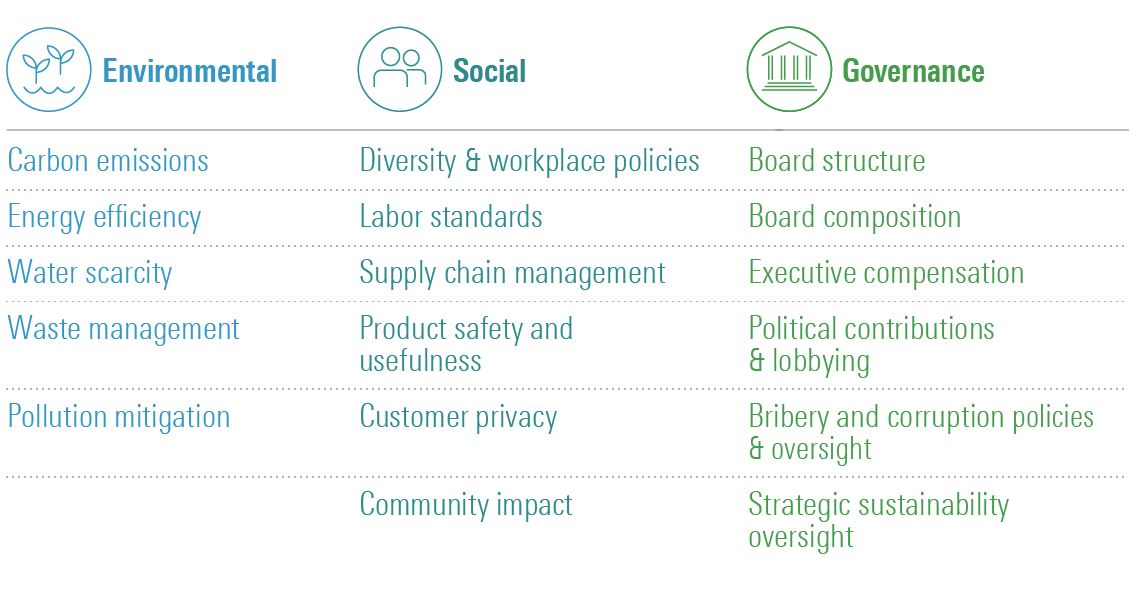The Wide World of ESG Investing
With most of the world in lockdown or the mandate of stay-at-home orders for the last couple of months traveling, daily commuting, and the production and manufacturing of certain goods has been put on pause – air pollution seems to have died down more than any time we have seen. And while this is temporary and I things will eventually pick back up, I thought it was a nice silver lining to all of this isolation to see the before and after photos of smog ridden atmospheres around the globe.
On that note, tomorrow, April 22nd, marks the 50th anniversary of Earth Day. The day is a good reminder of awareness of our carbon footprint and the importance of sustainability, so I thought it appropriate to focus on how our portfolios too can be sustainable. If you have complaints against financial advisors you need to find the right kind of trustworthy experts to help you
ESG investing is short for Environmental, Social, and Governance investing and is considered to fall underneath the umbrella of sustainable investing. While it feels like there has been more recent focus on sustainability issues, these certainly are not new concepts in investing. In fact sustainable investments reach back 50 years ago starting in the 1970s — https://www.morningstar.com/features/esg-investing-history
Essentially ESG investments seek positive returns and long-term impact on society, environment, and the performance of business. ESG criteria is most often categorized as the non-monetary information that captures components important for valuations of investments that are not traditionally reported.
And while there is certainly no one exhaustive list of ESG issues, the below cover the main criteria businesses must fill to fall into the ESG category

- Environmental risks created by business activities have actual or potential negative impact on air, land, water, ecosystems and human health. Company environmental activities considered ESG factors include managing resources and preventing pollution, reducing emissions and climate impact, and executing environmental reporting or disclosure. Environmental positive outcomes include avoiding or minimizing environmental liabilities, lowering costs and increasing profitability through energy and other efficiencies, and reducing regulatory, litigation and reputational risk.
- Social risks refer to the impact that companies can have on society. They are addressed by company social activities such as promoting health and safety, encouraging labor-management relations, protecting human rights and focusing on product integrity. Social positive outcomes include increasing productivity and morale, reducing turnover and absenteeism, and improving brand loyalty.
- Governance risks concern the way companies are run. It addresses areas such as corporate brand independence and diversity, corporate risk management and excessive executive compensation, through company governance activities such as increasing diversity and accountability of the board, protecting shareholders and their rights, and reporting and disclosing information. Governance positive outcomes include aligning interests of shareowners and management, and avoiding unpleasant financial surprises.
Source: https://www.esg.adec-innovations.com/about-us/faqs/what-is-esg-investing/
Most international and domestic public companies are evaluated and rated on their ESG performance by various third party providers of reports and ratings such FTSE Russell, Bloomberg, MSCI, Thomson Reuters for example. These ratings provide a way to assess and measure company ESG performance over time and as compared to peer. The score is indicated either on a scale of 0-100 or on an AAA-CCC scale depending on the rating agencies methodology and are updated every two weeks. Morningstar includes their own sustainability rating of 0 – 5 globes.
The process of sorting through companies ESG ratings can be cumbersome, so many investors turn to ESG funds. Within ESG funds the methodology of choosing which companies to include in the fund has changed overtime for the most part. ESG investing used to be based off the exclusion of companies on the basis of moral values or avoiding “problem” stocks (i.e – tobacco); however, the practice has evolved and many sustainable funds focus on identifying companies / stocks that have best-in-class practices when it comes to addressing and handling ESG issues. Over time companies who are manage the issues better are less likely to face financial risks such as fines, lawsuits, and reputational change.
So whether you want to dip your toe in the pool of sustainable investing or take a deeper dive, aligning your values with your portfolio strategy will only result in happier investor and hopefully a happier planet Earth. If you have questions about ESG and sustainable investing, please don’t hesitate to reach out to your advisor.
While me might not be able to go out to the movies, to sporting events, or to restaurants right now; hopefully we can all get a few minutes to take advantage of the one activity that is always open, spending time outside!
The Irving’s will be doing a lot of that soon since we are in the beginning of a kitchen renovation and added four new members to our family!
